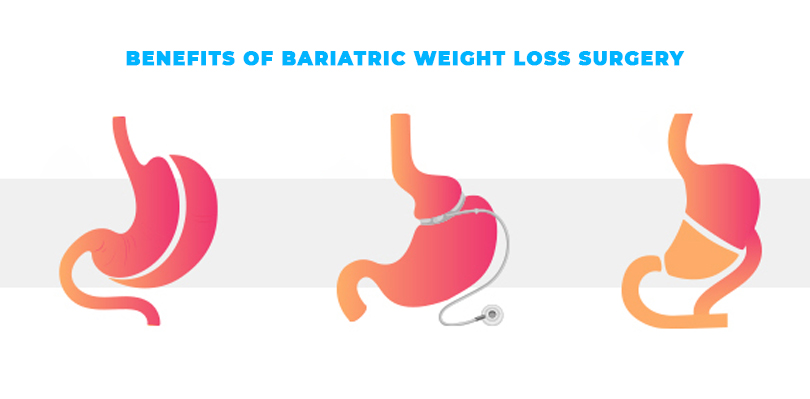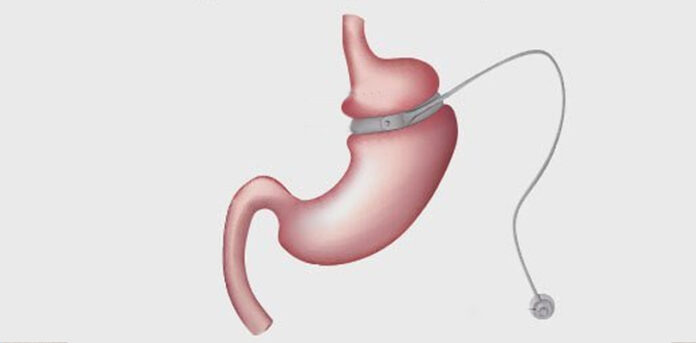Welcome to our guide on Bariatric Weight Loss Surgery. This blog aims to provide you with clarity on the intricacies of this transformative journey towards a healthier you. If you’ve been struggling to find the right weight loss solution, this guide is here to help.
We will explore the different types of bariatric surgery, the benefits, eligibility criteria, and postoperative expectations. Whether you’re considering this option or curious about its impact, we will demystify the surgical path to weight loss and improved well-being. Our goal is to empower you with insights that matter, so you can make informed decisions for a brighter and lighter future. Your journey to lasting change starts here.
What Is Bariatric Weight Loss Surgery
Bariatric Weight Loss Surgery, a life-altering medical procedure, aims to assist individuals struggling with severe obesity in achieving sustainable weight loss and improved health. By altering the digestive system’s anatomy, this surgery restricts food intake, promotes early satiety, and can even affect nutrient absorption.
Common procedures include gastric bypass, gastric sleeve, and gastric banding. Not only does bariatric surgery lead to significant weight reduction, but it can also alleviate obesity-related conditions like type 2 diabetes, hypertension, and sleep apnea. However, this transformative journey requires careful consideration, comprehensive medical evaluation, and lifelong commitment to dietary and lifestyle changes.
Benefits Of Bariatric Weight Loss Surgery

Sustained Weight Loss
Bariatric surgery is one of the most effective interventions for achieving significant and sustained weight loss. Unlike many traditional weight loss methods, which often result in weight regain, bariatric surgery offers a higher likelihood of maintaining a healthier weight over the years. This is due to the surgical alteration of the digestive system that curbs overeating and encourages portion control.
Health Improvement
The positive impact of bariatric surgery goes beyond weight loss. Many individuals with severe obesity also suffer from related health conditions like type 2 diabetes, high blood pressure, and obstructive sleep apnea. Bariatric surgery frequently leads to dramatic improvements or even resolution of these conditions. For example, in some cases, patients experience normalization of blood sugar levels, reduced blood pressure, and the elimination of the need for continuous positive airway pressure (CPAP) machines for sleep apnea.
Enhanced Quality Of Life
Obesity can limit physical activities, leading to reduced mobility and discomfort. Bariatric surgery addresses this by promoting weight loss and increased physical fitness. Patients often report improved joint health, reduced pain, and the ability to engage in activities they couldn’t before. This newfound mobility contributes to an enhanced overall quality of life.
Psychological Well-being
Obesity can take a toll on mental health, causing low self-esteem, body dissatisfaction, and an increased risk of depression and anxiety. Bariatric surgery has been linked to improvements in body image perception and self-confidence. As patients witness positive changes in their physical appearance and health, their self-esteem and overall psychological well-being tend to improve.
Longevity
Research suggests that bariatric surgery can contribute to increased longevity for individuals with severe obesity. By addressing not only weight but also associated health issues, the risk of obesity-related complications, such as heart disease and stroke, can be significantly reduced. This leads to a longer and healthier life.
Reduction In Medications
Many people with obesity-related health conditions rely on medications to manage their ailments. Bariatric surgery often leads to a reduction in the need for such medications. As weight decreases and health improves, individuals may find themselves requiring lower doses of medications or even being able to discontinue certain drugs altogether, under medical supervision.
In conclusion, Bariatric Weight Loss Surgery offers a holistic approach to achieving weight loss and overall well-being. Its benefits encompass sustained weight reduction, improved health conditions, better quality of life, psychological upliftment, potential for increased longevity, and decreased reliance on medications. However, it’s crucial to remember that each individual’s response to bariatric surgery may vary, and the decision to undergo the procedure should be made after thorough consultation with medical professionals.
Side Effects Of Bariatric Weight Loss Surgery
Nutritional Deficiencies
Bariatric surgery can lead to reduced absorption of essential nutrients due to the altered digestive system. This can result in deficiencies of vitamins (such as vitamin B12, vitamin D, and folate) and minerals (like iron, calcium, and zinc). Regular monitoring of nutrient levels and adherence to prescribed supplements is crucial to prevent deficiencies and related complications.
Dumping Syndrome
Gastric bypass and some other procedures can cause dumping syndrome, where food moves too quickly from the stomach to the small intestine. This can lead to symptoms like nausea, vomiting, diarrhea, and sweating shortly after eating. Managing this syndrome involves eating smaller, balanced meals and avoiding high-sugar or high-fat foods.
Gastrointestinal Issues
Bariatric surgery can result in gastrointestinal complications like ulcers, bowel obstructions, and hernias. These issues might require additional medical intervention, including surgery, to resolve. Following dietary guidelines and regular medical follow-ups can help minimize the risk of these problems.
Gallstones
Rapid weight loss following bariatric surgery can increase the risk of developing gallstones. The liver releases extra cholesterol into the bile, and if the body doesn’t have time to break down this cholesterol, gallstones can form. Doctors may recommend gallbladder removal during or after bariatric surgery to mitigate this risk.
Hair Loss
Many patients experience temporary hair loss several months after surgery, which is often related to the body’s adjustment to rapid weight loss and potential nutritional deficiencies. This condition, known as telogen effluvium, is usually temporary and hair growth resumes after the body stabilizes.
Psychological Effects
While bariatric surgery can lead to improved mental health for many individuals, some patients might experience psychological challenges. Adjusting to the physical changes and adapting to new eating habits can lead to stress, body image issues, or even a risk of developing eating disorders. Regular counseling or support groups can help address these concerns.
It’s important to remember that the likelihood and severity of these side effects can vary widely depending on the type of bariatric surgery, an individual’s health status, adherence to post-operative instructions, and ongoing medical care. Comprehensive pre-operative evaluation, post-operative monitoring, and a strong commitment to lifestyle changes and follow-up appointments are essential to manage and minimize potential side effects. Always consult with healthcare professionals to make informed decisions about bariatric surgery and its potential risks.
Experts Opinion About Bariatric Weight Loss Surgery
Health experts generally acknowledge Bariatric Weight Loss Surgery as a valuable tool in addressing severe obesity and its associated health conditions. Organizations like the American Society for Metabolic and Bariatric Surgery (ASMBS) and the National Institutes of Health (NIH) recognize its effectiveness in achieving significant weight loss and improving obesity-related diseases. They emphasize the importance of thorough patient evaluation, informed decision-making, and long-term commitment to lifestyle changes for successful outcomes. Health experts also underscore the need for personalized care, close medical supervision, and ongoing support to manage potential risks and maximize benefits. As with any medical intervention, opinions may vary, but overall, bariatric surgery is considered a valuable option when other weight loss methods have proven inadequate.
Tips For Bariatric Weight Loss Surgery
Educate Yourself
Prior to undergoing bariatric surgery, it’s crucial to educate yourself about the different types of procedures available (such as gastric bypass, gastric sleeve, and gastric banding), their benefits, risks, and potential outcomes. Understanding the surgical process, expected changes in your digestive system, and the necessary dietary adjustments will help you make an informed decision and mentally prepare for the journey ahead.
Build A Strong Support System
The journey through bariatric surgery and its aftermath can be challenging. Establish a robust support system comprising family members, friends, support groups, and healthcare professionals who specialize in bariatric care. Their guidance, encouragement, and understanding will prove invaluable as you navigate physical, emotional, and lifestyle changes.
Adhere To Pre- And Post-Operative Guidelines
Follow your medical team’s instructions closely before and after surgery. Pre-operative guidelines might include dietary restrictions and lifestyle adjustments to ensure you’re physically ready for the procedure. Post-operatively, you’ll need to adhere to a structured diet plan that gradually introduces different foods, as well as exercise recommendations. Proper compliance minimizes risks, facilitates healing, and optimizes weight loss results.
Lifelong Lifestyle Changes
Bariatric surgery is not a standalone solution; it’s a tool that facilitates weight loss and improved health. To make the most of this tool, commit to permanent lifestyle changes. Embrace a balanced diet rich in nutrients, focus on portion control, prioritize protein intake, and avoid high-calorie, low-nutrient foods. Regular physical activity is equally important. Cultivate a mindful eating approach and address emotional triggers for overeating. Consider ongoing medical follow-ups to monitor your progress and address any concerns.
Remember that bariatric surgery requires dedication, patience, and a positive mindset. It’s not a quick fix but a transformative journey that demands continuous effort. Consulting with a team of experienced healthcare professionals, including surgeons, dietitians, and mental health specialists, will provide comprehensive guidance tailored to your unique needs.
FAQs
Is Bariatric Surgery Right for Me?
Many individuals wonder if they are suitable candidates for bariatric surgery. Eligibility criteria vary, but generally, those with a body mass index (BMI) of 40 or higher, or a BMI of 35-39.9 with significant obesity-related health issues, might qualify. Factors like medical history, previous weight loss attempts, and overall health play a role. Consulting a bariatric surgeon is essential to determine if the procedure aligns with your needs and goals.
What Can I Expect After Surgery?
Post-operative expectations are common concerns. After surgery, a gradual transition from clear liquids to solid foods is guided by your healthcare team. Expect changes in appetite, portion size, and metabolism. Rapid weight loss is common in the initial months, followed by a steadier pace. Regular exercise, proper hydration, and adherence to dietary guidelines are essential for success. Additionally, patients often experience improvements in obesity-related health conditions like diabetes and high blood pressure.
What Lifestyle Changes Are Necessary?
Individuals often inquire about the lifestyle adjustments required post-surgery. Lifestyle changes are crucial for long-term success. This includes adopting a balanced diet rich in protein, vitamins, and minerals while minimizing high-calorie and sugary foods. Portion control and mindful eating become habits, and regular exercise is encouraged. Psychological well-being is also addressed, as emotional triggers for overeating may need attention. Ongoing medical follow-ups ensure that you stay on track and address any concerns or challenges.

